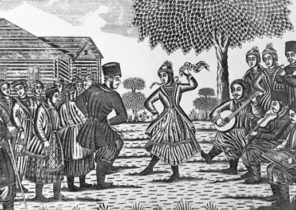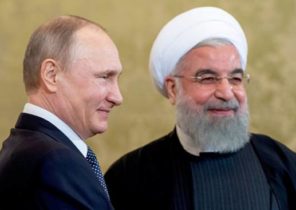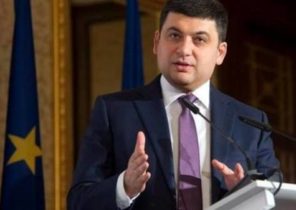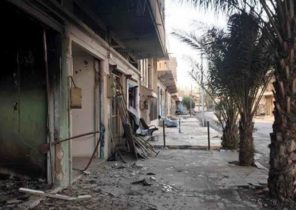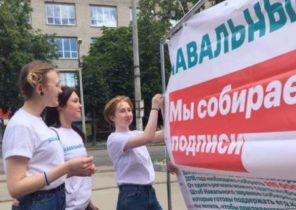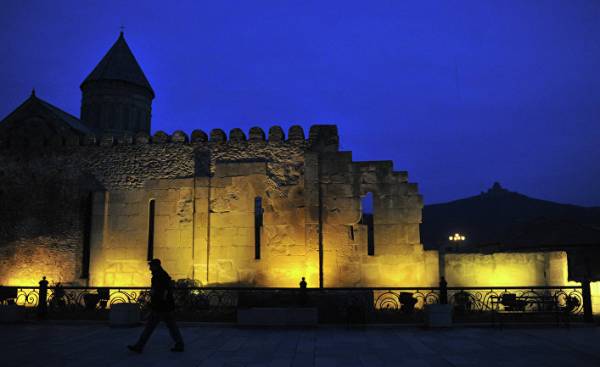
World history of poisoning added a new grotesque episode: one of the closest associates of the Patriarch of the Georgian Orthodox Church Ilia II, the steward of the Patriarchate, Archpriest George Mamaladze arrested on suspicion of trying to poison the head of the Georgian Orthodox Church, who in January was 84 years old. During a search at the Tbilisi airport Archpriest found cyanide. And he went to Germany, where recently Patriarch Ilia had surgery.
Beelzebub is in a female form
Later it turned out that father George Mamaladze for several weeks, trying to get it cyanide and requested it to his cousin, journalist Irakli Mamaladze. He was afraid, secretly recorded the revelation of the priest in which the priest detailed the need to justify poisoning, and then took the record to the Prosecutor.
The matter was immediately taken under the control of the top leadership: the Prime Minister Giorgi Kvirikashvili was sent to Germany officers personal protection and security services found for FR. surveillance and arrested him while trying to fly to Germany with potassium cyanide.
It would seem that the case though is awesome, but the criminal essence is simple and clear. But here intervened “big politics”: the relatives. reported the seizure of the opposition TV company “Rustavi-2”, owned by friends of former President Saakashvili, and they began to develop the theory that the authorities have lied about the poisoning, to prevent the Archpriest Mamaladze, God-fearing Christian and a faithful cleric of the Church, to tell the Georgian society the truth about the terrible corruption in the Patriarchate. In support, they cite a letter of Archpriest. (obviously, written before his arrest), in which he really talks about the appalling corruption, the transformation of the Patriarchate of the GOC in the business Corporation, about the greed of the lords and limitless impact on the Church Secretary’s Patriarch Shorena, Tetruashvili.
According to the arrested priest, Mrs. Tetruashvili serving as Patriarch since 1981, has in of the Georgian Orthodox Church has enormous power, solves the issues of ordination of bishops, distributes the huge financial resources at the disposal of the Church in recent years and is able to “punish or pardon” on behalf of the Patriarch. In fact, she Archpriest and set out to poison the Patriarch Elijah — thus he wanted to liberate the Church, and the Patriarch of the dark enchantments of Mrs. Tetruashvili.
To confirm or refute this version is impossible, since the Georgian Prosecutor’s office has so far refused to publish the main evidence — the video recording of the revelations of Archpriest during the negotiations on the purchase of potassium cyanide. The reason for the refusal is clear: video can cause even greater harm to the credibility of the Georgian Orthodox Church and Patriarch Elijah because in an attempt to justify its decision George Mamaladze does not mince words, regardless of the person and dignity.
From Lateran to Mtskheta
Than not the story of the history of the Byzantine era of Roman II or Constantine Bagrjanorodnogo? But the main thing in this story is not the incident of cyanide. In the end, by all indications it is obvious that here we are dealing with the case when believers say that the man was possessed by the devil, and the laity — that he simply went nuts. Otherwise it is difficult to explain the attempt to cross the border with cyanide and kill the VIP patient in one of the best German clinics with cameras and guards.
Much more significantly, the incident made a deep public ethical crisis, which the Georgian Orthodox Church. And this crisis is not limited to the insane attempt to poison the Patriarch.
The arrest of the priest led to the fact that Georgian society collapsed real shaft reports about various abuses in the GOC. Live were made by the Metropolitan Kandinsky Bishop Peter, speaking in detail about the pervasive corruption in the Church. Letter arrested Archpriest widely discussed, and the priests, and the laity, which isn’t restrained by self-censorship, fear encroach on the Holy of holies and the most influential public institution of Georgia.
Actively and publicly began to discuss what used only occasionally and timidly leaked to Georgian media in the form of rumors. In the Patriarchate of the GOC is a serious problem. Some lords became the leaders of the business clans, and their relatives go around Europe, dress in Milan and enjoy the speed Ferrari on the streets of Paris, not thinking about the salvation of souls.
They can afford thanks to the multi-million dollar rent and the tax benefits that the GOC received from the state on the basis of a concordat signed in 2002, the ecclesiastical capital of Georgia Mtskheta, the ancient Svetitskhoveli Cathedral, where, according to Church tradition, lies dying the robe of Christ. In fact, the agreement in Georgia is legalized and documented situation, similar in many ways to the Russian Church became not just a public but also a public institution, the source of legitimation of power and political elites.
Orthodox concordat is fundamentally different from the Catholic: if the Lateran agreements of 1929 eventually led to a real separation of state and Church in Italy concordat of Mtskheta 2002 in Georgia, by contrast, ended with the merger of Church and state, and in some respects even the dominance of the Church. Unlike Mussolini, President Shevardnadze could not say “no” to the growing claims of the Patriarchate.
Rent financial and moral
The Georgian state pays annually to the Patriarchate of the Georgian Orthodox Church (unlike other traditional confessions of Georgia) tens of millions of lari. Hundreds of millions are earned due to tax benefits. But over the past 10-15 years, the Church has gratuitously received from the state of about 1.7 thousand hectares of land, becoming the largest landowner.
Hundreds of deeply religious priests who with God’s help, still a lot in Orthodox Georgia — harder to answer questions timid flock about luxury cars, which are touring the Bishop, and about the adventures of their relatives, which in what does not deny for some new revenues. Georgia is a small country, and here the luxurious life of priests to hide much more difficult than in Russia.
The main reason for the crisis of the Orthodox Church, the third Rome, in “the second Jerusalem”, as the Georgian nationalists are often called Tbilisi — Mtskheta, one and the same: in both countries the Church and state are still trying to build up their relationship on the medieval model. But society has changed dramatically since the days when the boundaries of Church and state was hard to see.
The merger and the vesting of the Church is deeply archaic functions leads to rotting, sprouting around the state organism, and then to the inevitable explosion that undermines the existing of course, no one ever autonewline and vital to the moral fabric of society.
Scandal in the GOC only began to develop. It is unclear what evidence will the Prosecutor give the prisoner the priest who was arrested in the case of cyanide. Will the other senior hierarchs of the GOC directly involved in this scandal. Yet he resigned only the chief bodyguard of the Patriarch and his press Secretary. Latest — father Michael Botkoveli — before leaving said a mysterious phrase: “I’m tired… can’t… no emotions.”
While it is difficult to say what specific solutions will take the Georgian authorities in response to this scandal, and how the incident will affect relations of Church and state. No one supported the proposal of the liberal Republican party to stop government funding of the GOC. But the arrested priest had not yet started to testify about the embezzlement in the Patriarchate.
However, one result is already evident: the Orthodox Church in Georgia has lost its traditional sacred inviolability — now it can be discussed not only in the kitchen, but openly in the media, on talk shows, do not hold back in expressions, and despite San. And this withdrawal is an unspoken taboo, ultimately, may be more important than exemption from draft budget item for the ecclesiastical subsidy.
